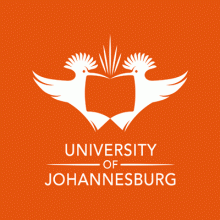For the first time at a Times Higher Education conference, students were given a platform to reveal what they want from a 21st-century education.
During the THE BRICS and Emerging Economies Universities Summit at the University of Johannesburg last week, students hailing from or studying in all five of the BRICS countries – Brazil, Russia, India, China and South Africa – joined vice-chancellors, academics, industry figures and ministers to share their vision of how universities in developing nations can better prepare their students for the job market.
Their insights were varied but rarely differed from the challenges that universities in developed countries are grappling with. Iaroslav Golubev, a student at ITMO University in St Petersburg, spoke about the need for more engaging teaching, criticising both uninspiring lecturers as well as tutors who try too hard to teach in a quirky way.
He said that his main frustration with his institution was how slowly research feeds into modes of education.
Meanwhile, Nupur Patel, who is studying at the University of Johannesburg, spoke about the need for non-science subjects to be taught “in a practical way” to better prepare students for the world of work.
This view was later echoed by Denis Epko, professor of comparative literature at the University of Port Harcourt in Nigeria, who said that the humanities in African universities “haven’t made themselves very relevant to the needs of the times” and are “more concerned about cultural recognition than cultural growth”.
A key question of the summit, which was on the theme “reimagining the world-class university”, was the extent to which universities in emerging economies can learn from and collaborate with institutions in other parts of the world on such issues, while also defining their own measures and milestones of success.
Adam Habib’s suggestion was for each university to determine its own unique mission, rather than attempt to copy the strategy of Oxford or Harvard. The vice-chancellor of the University of the Witwatersrand said that institutions must be “locally responsive and globally competitive”, a strategy he said universities cite but do not always “internalise”.
“What happens is we assume that to be world-class we must imitate the best. But all that we will be is a pale imitation,” he said during a panel discussion on how higher education can manage for the future.
“Instead, to be really world-class you need to contribute something that nobody else contributes,” he said, adding that institutions should find “inspiration” from their own context in order to apply knowledge to a local problem and “give it back to the global academy”.
“It is precisely this that makes you world-class.”
This is exactly what universities are for, but it is a particularly vital mission for institutions in developing countries. They should not look for academic excellence for its own sake but instead focus on how to drive knowledge, jobs and development to benefit their local communities. Only then can they have an impact on the global stage.
Register to continue
Why register?
- Registration is free and only takes a moment
- Once registered, you can read 3 articles a month
- Sign up for our newsletter
Subscribe
Or subscribe for unlimited access to:
- Unlimited access to news, views, insights & reviews
- Digital editions
- Digital access to THE’s university and college rankings analysis
Already registered or a current subscriber?










